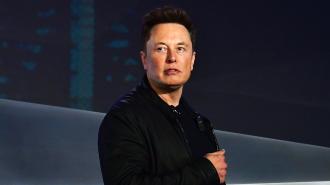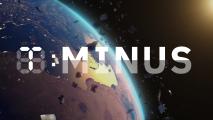Last week, Ukrainian vice prime minister Mykhailo Fedorov appealed directly to SpaceX CEO Elon Musk on Twitter to deliver Starlink satellite internet service to his country, which had been invaded by Russian armed forces days earlier.
Several hours later, Musk tweeted back: “Starlink service is now active in Ukraine. More terminals en route.”
Two days later, Fedorov tweeted an image of a truck loaded with Starlink dish receivers, which could potentially keep lines of communication open if Russian forces manage to take down the country’s communications infrastructure.
Internet from above: Starlink’s aim is to provide high speed internet connections anywhere in the world.
To do so, SpaceX is sending up legions of low orbit satellites, creating a rotating blanket to provide constant coverage. The hope is that, because of their lower orbit and vast numbers, Starlink’s satellite internet will have faster and more consistent coverage than existing satellite internet.
Crucially, Starlink could provide internet in situations where ground-based infrastructure may be compromised – as in a war.
The satellites relay internet to Starlink gateways on the ground, attached to existing fiber optic infrastructure, The Verge explained, several of which are located in countries near Ukraine.
End users then pick up the signal using a Starlink kit. The kits contain a user terminal that connects to the satellite, a mounting tripod, and a Wi-Fi router, CNBC reported; the amount of kits SpaceX is sending to Ukraine is unknown.
Starlink is still currently in beta, with around 145,000 users and 2,000 satellites, per CNBC.
Service is on: Ukrainian engineer Oleg Kutkov was able to stick his dish — bought previously off eBay — out of his window in Kyiv and confirmed he got a signal.
“I honestly didn’t believe that it would work,” Kutkov told The Verge.
“I thought there might be some problems with obstructions, might be some problems with my Dishy [a play on SpaceX’s pet name for the devices]. But no, it just connected. I got really good speed, really good connectivity.”
Kutkov was able to reach a top speed of over 200 Mbps.
Starlink provides internet using a legion of low-orbiting satellites.
Currently, internet services in most Ukrainian cities are still going strong, as evidenced by the flood of information pouring out of the war zone. But there have been some collapses, NetBlocks, which is tracking internet speeds, told the BBC.
NetBlocks’ Alp Toker cautioned that Starlink would not be a silver bullet should Russia manage to hamstring Ukraine’s internet, but it could ensure that at least some information could escape in the event of a blackout.
“Starlink can provide connectivity by creating a personal hotspot for people who are in the vicinity of the device,” Toker told the BBC. “So this is very useful for journalists, for resistance groups or the elected government.”
University of Toronto researcher John Scott-Railton tweeted another, darker concern: that Russian forces could theoretically triangulate the satellite transmission to identify targets. Even still, he called the donation “good to see.”
Toker told the BBC that there is a risk of users being identified if Russia controls the skies, but that the bigger danger may be in explaining how they came into possession of one if caught.
The pressure is on: Musk’s rapid Starlink activation and terminal donations are a striking example of the Ukrainian government’s social media campaigning, as Fedorov (who is also minister of digital transformation) leverages Twitter to put the pressure on the world’s largest tech companies.
“His ability to galvanize international opinion and opinion at the tech companies is extraordinary,” Emerson Brooking, an Atlantic Council senior fellow who studies social media and war, told the Washington Post.
Starlink could potentially keep lines of communication open if Russian forces manage to take down the Ukraine’s communications infrastructure
Fedorov’s war of words is already influencing tech companies. YouTube and Facebook have taken steps to remove Russian state media, and Alphabet has turned off some Google Maps functions to help protect Ukrainian citizens.
It is a reminder that modern wars are fought not only on physical fronts, but financial, emotional, and informational ones, too. And so far, it appears Ukraine is a match for the Russian military in at least these latter theaters.
We’d love to hear from you! If you have a comment about this article or if you have a tip for a future Freethink story, please email us at [email protected].





